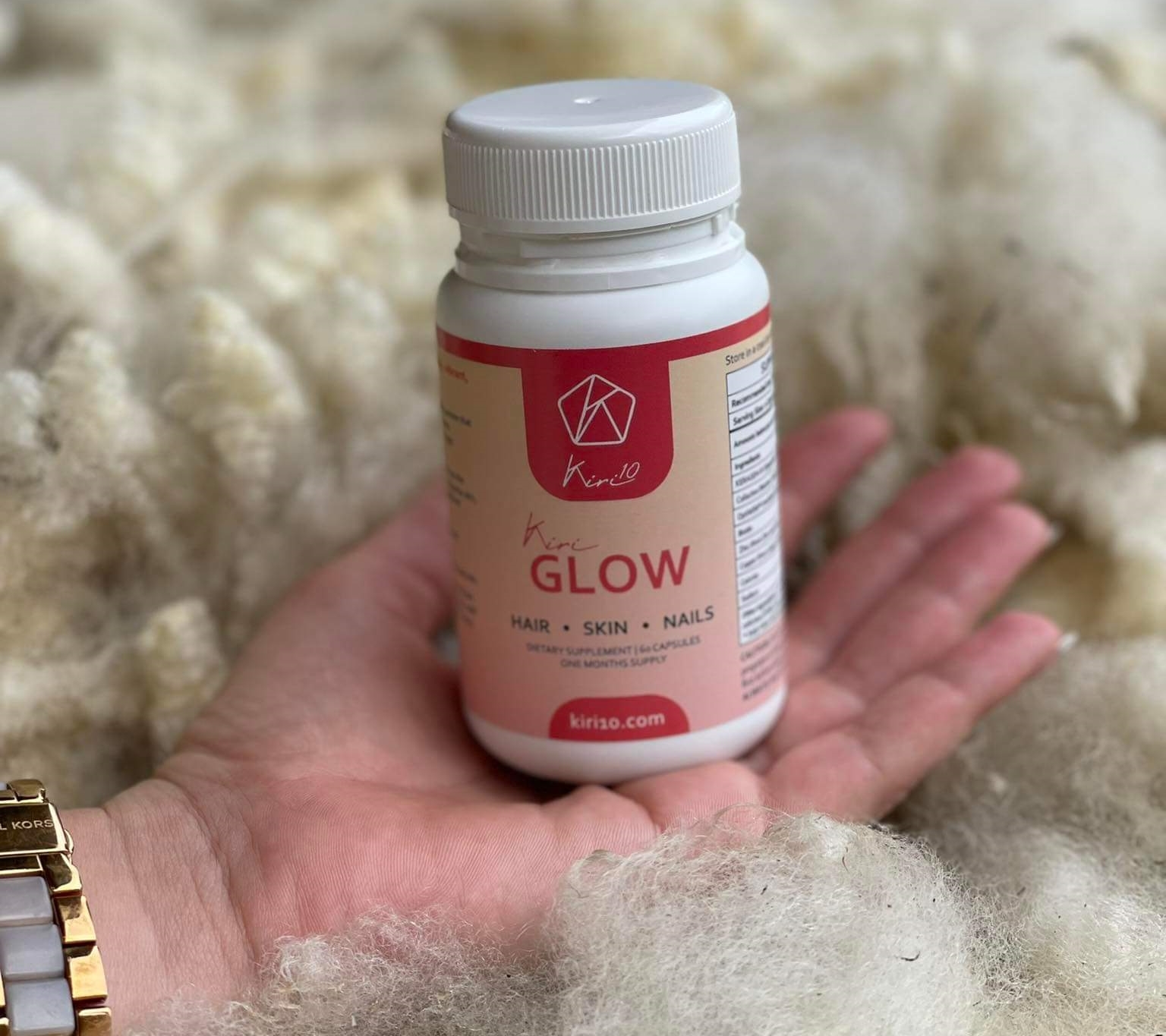A US plastic surgeon’s research into wound repair is set to provide a boost for New Zealand’s regeneratively farmed wool exports.
The research has led to the discovery that wool sourced from sheep in New Zealand contain higher levels of a scleroprotein called keratin, a key structural material which protects epithelial cells from damage.
The development has also seen the establishment of a new cosmeceutical export industry in Canterbury – formulating dietary supplements which contain keratin extracted from sustainably farmed sheep’s wool.
Natalie Harrison (pictured below), managing director of keratin supplement brand Kiri10, says the concept of consuming wool to provide a health benefit for humans is still in its infancy but showing significant promise.
She says New Zealand keratin is used in dermatological treatments in dozens of countries around the world for the clinical management of wounds and severe burns – including those injured during the White Island eruption.
“Keratin extracted from New Zealand wool has been used in topical wound care for some years now, following the discovery by a US surgeon that wounds heal faster closer to hair follicles – where there is greater concentration of collagen.
“US scientists were able to isolate the keratin protein responsible for promoting skin healing and a parallel research process in New Zealand was able to successfully extract it from wool.
“We now also know that this extract can help wounds heal 25 percent faster by stimulating collagen production, however it is only recently that we have started to look at its application for internal use in human nutrition.
“There is a close alignment between the clinical use of keratin and the cosmetic industry as both utilise the significant structural role in the formation and protection of the tissues of the hair, nails, and the outer layer of the skin this scleroprotein provides.
“Globally, the cosmeceutical market is growing at over 5% per annum and is forecast to reach over $100bn within three years.[1]
“New Zealand is uniquely positioned to capture a significant segment of this export market as our breeding programme has focused on coarse wool which yields higher levels of keratin than fine wool sheep breeds,” she says.
Harrison says around 80 tonnes of wool sourced annually from sustainable farms in Otago and Southland are processed at a Lincoln scientific research and production facility which holds over 180 patents covering the extraction of keratin from the natural fibre.
She says the export of keratin is already a multi-million dollar industry for New Zealand – reaching over 50 markets throughout Europe, Asia and US – including some of the world’s most recognisable shampoo brands.
“Significant local research, which was supported by the wool industry, has helped develop new industrial processes for the isolation of functional keratin proteins.
“The technology behind these processes keeps the protein intact, increasing its bioavailability for consumption – meaning it is a 91 percent match with human keratin when it is absorbed internally.
“Along with the use of regeneratively farmed wool, this IP helps the industry create a competitive advantage which is unique to New Zealand.
“With the research support of our suppliers, we are now able to use this knowledge to create a line of keratin and collagen supplements which are designed to help consumers repair and improve the health and appearance of hair, skin and nails.
“The new product line will create a third pathway for New Zealand’s exports – as well as serving the local market,” she says.
Tom O’Sullivan, NZ chairman of Campaign for Wool, an advocacy group launched by the Prince of Wales says agritech companies are playing an increasing role in the development of wool exports.
“We have known for some time that New Zealand’s wool industry can’t easily be differentiated as a commodity supplier.
“High tech applications for regeneratively farmed wool, like the extraction of keratin for the health care and cosmeceutical industries, are helping to create new markets for wool and strengthen our brand equity internationally.
“At the same time, these value added producers provide above average returns for farmers which is helping to stimulate a move towards more sustainable farming,” he says.
Harrison says a supplement formulation containing keratin protein, collagen and other ingredients is being launched under the Kiri10 brand for the export and domestic markets.
She says the next stage of research will be trials around the application of keratin supplements for joint and muscle regeneration.




